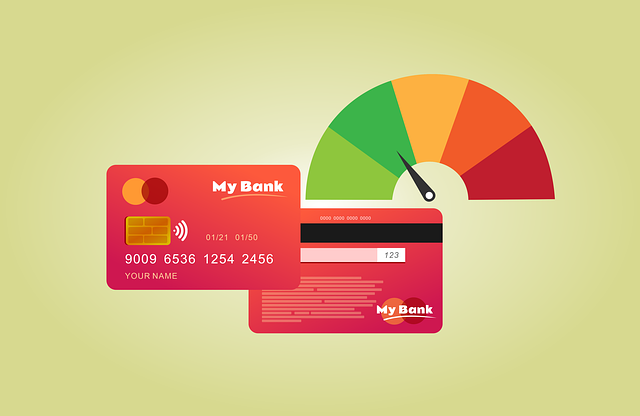Credit scores significantly impact real estate transactions. Higher scores yield better mortgage rates and insurance premiums, simplifying homeownership. Lower scores restrict financing options and increase costs. Understanding credit-rate relationships, influenced by payment history, debt levels, and property factors, is key to achieving favorable terms and real estate goals. Regularly improving credit scores through timely payments and debt reduction enhances real estate opportunities.
In the competitive world of real estate, understanding the correlation between credit scores and mortgage rates is paramount. Higher scores unlock better rates, significantly impacting your long-term financial burden. This article deciphers the intricate relationship between credit scores and lending terms, offering insights into how to elevate your score for more favorable mortgage conditions. From appreciating the credit score impact in real estate to adopting effective strategies for improvement, this guide equips you with knowledge to navigate the market successfully.
Understanding the Credit Score Impact in Real Estate

In the realm of real estate, understanding credit scores and their impact is paramount for both buyers and sellers. A higher credit score typically translates to better rates, which can significantly influence the financial aspect of any property transaction. This is because lenders often view individuals with strong credit histories as lower-risk borrowers, enabling them to secure more favorable loan terms.
When it comes to purchasing a home, a good credit score can result in lower interest rates on mortgages, reducing monthly payments and overall borrowing costs. Conversely, a low credit score may limit access to financing or lead to higher interest rates, making homeownership more expensive. Thus, maintaining or improving one’s credit score can be a game-changer in the competitive real estate market, ensuring better opportunities and outcomes for both buying and selling properties.
Deciphering the Relationship Between Scores and Rates

In the realm of real estate, understanding the intricate relationship between scores and rates is paramount for both buyers and sellers. Scores, whether referring to credit scores or property assessment ratings, play a pivotal role in determining the financial terms of a transaction. Higher scores often translate into more favorable rates, such as lower interest on mortgages or reduced insurance premiums. This positive correlation stems from the perception of lower risk associated with individuals or properties that have high scores.
Deciphering this relationship involves delving into the factors that comprise these scores. In real estate, credit scores are influenced by payment history, debt levels, and length of credit history. Properties, on the other hand, are rated based on factors like location, condition, and market value. When these scores are high, they signal to lenders and insurers that the borrower or property is a safe investment, justifying better rates and terms.
Strategies to Elevate Scores for Better Mortgage Terms

Elevating your credit score is a powerful strategy to secure better mortgage terms in the competitive real estate market. A higher credit rating demonstrates financial responsibility and increases your chances of qualifying for lower interest rates, which can save you thousands over the life of your loan. To achieve this, focus on consistently making timely payments on all your debts, including credit cards and existing mortgages. Paying down high-interest debt is also crucial; reducing your overall debt burden will positively impact your score.
Additionally, keeping a low credit utilization ratio—the amount of available credit you’re using compared to your total limit—is beneficial. Maintaining a balanced approach to borrowing can significantly boost your score. Regularly reviewing your credit report for errors or discrepancies is another smart step; disputing any inaccurate information can help correct mistakes that may be dragging down your rating. Remember, these strategies take time and consistent effort, but the benefits of improved mortgage terms in the real estate market are well worth the investment.






